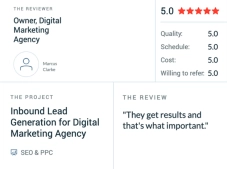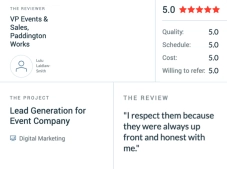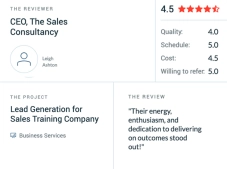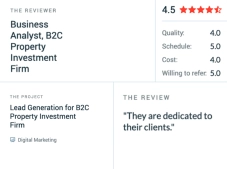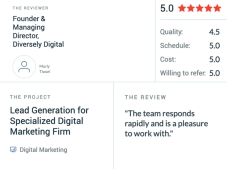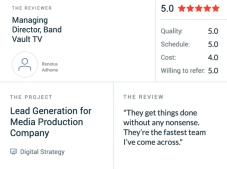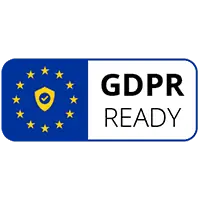The Ultimate Guide To Practice Effective Cold Calling
Cold calling is a task that many salespeople dread, but it can be an effective way to generate new business. However, success in B2B cold calling does not come naturally; it requires practice and perseverance. Whether you are a seasoned sales professional or just starting, practising your cold-calling skills can significantly improve your results.
One of the main reasons why practice is so important in B2B cold calling is because it helps you refine your approach. You can learn what works best for your target audience by practising different opening lines and pitch angles.
Here is a guide on how to practice effectively to become one of the best at cold calling.
Introduce Yourself
The key to success has a strong introduction that grabs the listener’s attention and sets the tone for the conversation.
When introducing yourself on a cold call, start with your name and company. This establishes credibility immediately and lets the person on the other end know who they’re speaking with. Be confident and enthusiastic when delivering your introduction – people can hear it in your voice! Keep it concise; you don’t want to waste their time with unnecessary information.
It’s also important to personalise your introduction as much as possible. Do some research beforehand to reference something specific about their business or industry.
Know Your Prospective Customer
Knowing your prospective customer is one of the essential cold-calling techniques. This knowledge will help you tailor your approach and increase your sales chances.
To begin with, research your prospective client before making the call. Look up their website, social media pages, and any other online presence they may have. This will give you valuable insights into their business and what they may seek regarding products or services. Additionally, try to find out if they have any pain points that you could address during the call.
Establish Rapport
Connecting with the prospect allows you to build trust and credibility quickly. When you establish rapport, you create a sense of warmth and friendliness that helps to break down barriers between you and your prospect. This approach opens the conversation to a more relaxed atmosphere where both parties can freely share ideas.
To establish rapport effectively, focus on understanding your prospect’s needs before introducing yourself or what you’re selling. Doing so demonstrates that you care about their needs and interests, making them feel valued as individuals rather than just another potential sale.
Use A Positioning Statement
One effective cold calling technique for mastering the art of cold calling is using a positioning statement. This statement outlines what your company does, who it serves, and what makes it unique in just a few short sentences. It’s like an elevator pitch you can use when introducing yourself on a call.
Creating and practising your positioning statement lets you quickly and confidently communicate your value proposition to a potential client during a cold call. This will help you establish credibility and pique their interest in learning more about how your products or services could benefit them.
Know And Trust Your Offer
One of the best practices in successful cold calling is knowing and trusting your offer. This means understanding what you’re selling and why it’s valuable to potential customers.
Before picking up the phone, take some time to review your product or service. Make sure you understand how it works, who it’s best suited for, and what benefits it provides. This will help you answer any questions or objections during a call.
Be An Active Listener
It’s important to understand what active listening means. It’s about paying close attention to the person you’re talking to and engaging with them to show you’re genuinely interested in what they say. This involves asking open-ended questions, repeating back key points they’ve made, and showing empathy when appropriate.
By being an active listener during outbound calls, you’ll be able to build rapport more effectively with a potential client or prospective client. This will help put them at ease and make them more likely to trust what you say.
Spend More Time Selling
Instead of spending hours researching prospects or creating lengthy cold calling scripts, focus on what matters: building relationships with potential customers. Take the time to understand their needs and how your product or service can help them solve their problems.
To do this effectively, ensure you clearly understand your product or service and its unique selling points. This will allow you to communicate its value confidently and convincingly during outbound calls. Develop a cold calling script that outlines key talking points and allows for a natural conversation flow rather than sounding scripted or robotic.
Anticipate Objections
One of the most important aspects of cold calling is anticipating objections. If you can anticipate your prospect’s objections before they voice them, you’ll be better prepared to handle them effectively.
Anticipating objections means being aware of the common issues prospects might have with your product or service. Some common objections include price, timing, need, competition, and trust. By understanding these potential concerns beforehand, you can prepare responses to help overcome them.
Conclusion
Practice is an essential aspect of cold calling. It enhances your skills, builds confidence, and helps you determine what works and doesn’t. Practice allows you to refine your approach, develop your message, and improve your delivery. Without best practices, you may struggle to connect with prospects effectively.
Cold calling is not easy; it requires much effort and perseverance. But consistent practice can make the cold-calling process more manageable. As you become more familiar with the cold calling process, it becomes easier to recognise patterns in how prospects respond and adjust your approach accordingly.
Was this article helpful? Let us know in the comments.
FAQ
What skills do you need for cold calling?
Confidence is crucial when cold calling. You need to have the self-assurance to speak with prospects confidently and persuasively. Rejection is part of the game, so you must handle it well and move on.
How do I overcome my fear of cold calling?
Firstly, understand that rejection is part of the game. Not everyone will be interested in your offer, which is okay. Don’t take it personally or let it discourage you. Secondly, prepare for the call by researching your prospect beforehand and practising your pitch until you’re comfortable.
How can I practice cold calling myself?
Firstly, start by practising your pitch. Write a cold call script and practice it until you feel comfortable delivering it naturally. You can also record yourself practising and listen back to identify improvement areas.
Secondly, think about your target audience and research them thoroughly before making the call. This will help you to tailor your pitch to their needs and interests.








